Related Research Articles

The State of Mérida commonly known simply as Mérida is one of the 23 states of Venezuela. The state capital is Mérida, in the Libertador Municipality.

Táchira State is one of the 23 states of Venezuela. The state capital is San Cristóbal.

Trujillo State is one of the 23 states of Venezuela. Its capital is Trujillo but the largest city is Valera. The state is divided into 20 municipalities and 93 parishes. Trujillo State covers a total surface area of 7,198 km2 (2,779 sq mi) and, has a 2011 census population of 686,367.
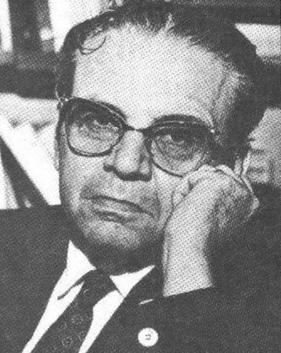
Mariano Federico Picón Salas was a Venezuelan diplomatic, cultural critic and writer of the 20th century, born in Mérida on January 26, 1901, and died in Caracas on January 1, 1965.
The University of the Andes is the second-oldest university in Venezuela, whose main campus is located in the city of Mérida, Venezuela. ULA is the largest public university in the Venezuelan Andes, having one of the largest student bodies in the country.

The Central University of Venezuela is a public university located in Caracas, Venezuela. The university is widely regarded as the highest ranking institution in the country. Founded in 1721, it is the oldest university in Venezuela and one of the oldest in the Western Hemisphere. It is ranked 18th among the universities in Latin America.
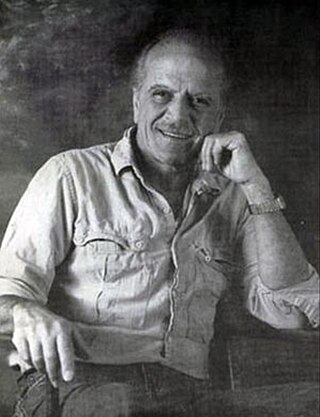
Rodolfo Abularach was a Guatemalan painter and printmaker of Palestinian descent.

Carlos Cruz-Diez was a Venezuelan artist said by some scholars to have been "one of the greatest artistic innovators of the 20th century."

Mérida, officially known as Santiago de los Caballeros de Mérida, is the capital of the municipality of Libertador and the state of Mérida, and is one of the main cities of the Venezuelan Andes. It was founded in 1558 by Captain Juan Rodríguez Suárez, forming part of Nueva Granada, but later became part of the Captaincy General of Venezuela and played an active role in the War of Independence.
The University of the Andes Library Services, officially known as SERBIULA, is the organization responsible for managing and directing all the different libraries of its parent institution, the University of the Andes, one of the main universities in Venezuela.

The Venezuelan Andes also simply known as the Andes in Venezuela, are a mountain system that form the northernmost extension of the Andes. They are fully identified, both by their geological origin as by the components of the relief, the constituent rocks and the geological structure.

The Black Paintings is the name given to a group of 14 paintings by Francisco Goya from the later years of his life, likely between 1819 and 1823. They portray intense, haunting themes, reflective of both his fear of insanity and his bleak outlook on humanity. In 1819, at the age of 72, Goya moved into a two-story house outside Madrid that was called Quinta del Sordo. Although the house had been named after the previous owner, who was deaf, Goya too was nearly deaf at the time as a result of an unknown illness he had suffered when he was 46. The paintings originally were painted as murals on the walls of the house, later being "hacked off" the walls and attached to canvas by owner Baron Frédéric Émile d'Erlanger. They are now in the Museo del Prado in Madrid.

Edgar C. Otálvora is a Venezuelan intellectual, journalist, and politician who has held government and diplomatic positions. He is an expert in international politics and economics, and has distinguished himself as an analyst of Latin American topics, with a focus on military, diplomatic, and political issues. He has been a columnist in Venezuelans and Americans newspapers, in addition to directing the newspaper El Nuevo Pais in Caracas from 2006 to 2010. He is a professor at the Central University of Venezuela. He was a close collaborator of former Venezuelan president Ramón J. Velásquez. He has cultivated the biographical genre, being the first to write biographies of the 19th century Venezuelan presidents Raimundo Andueza Palacio and Juan Pablo Rojas Paul, as well as the Colombian president Virgilio Barco Vargas. Columnist in Diario Las Américas of Miami.

Wilmer Herrison is a Venezuelan artist currently based in Paris. He is the creator of a modern art influenced by both European and South American traditions.
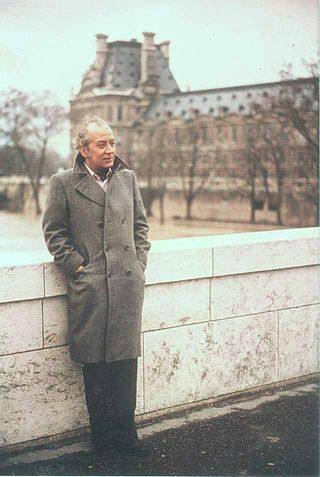
Juan Sánchez Peláez was a Venezuelan poet and National Prize winner for Literature in 1975.
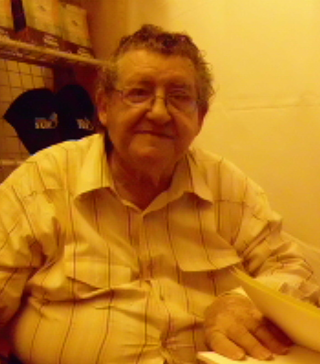
Román Chalbaud was a Venezuelan film director, screenwriter, and prominent playwright. Starting work in television after prestigious training, Chalbaud moved into making films before the industry took off in his home country, returning to theatre where he had been a great success for several years until filmmaking became a viable industry. He served as the president of Venezuela's leading theatre, television, and film organisations.

David Ramón Sánchez Palomares was a Venezuelan poet, born in Escuque. In 1975 received the National Prize for Literature; in 2006 the first Víctor Valera Mora International Prize for Poetry; and in 2010 the Ibero-America Award for Literature.

José Manuel Briceño Guerrero was a Venezuelan writer, philologist and philosopher. A large part of his work was published under the pen-name Jonuel Brigue.
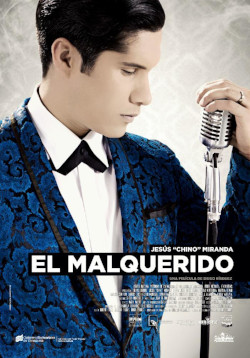
El malquerido is a 2015 biographical film directed by Venezuelan filmmaker Diego Rísquez, starring Jesús Miranda and Greisy Mena. The film is based on the life of the Venezuelan bolero singer Felipe Pirela.

Juan Alfredo Biaggi Lama was a Dominican jurist, academic and essayist.
References
- ↑ "Astorga Junquera, Juan en Wikihistoria del arte venezolano (spanish)" . Retrieved 1 August 2023.
- ↑ "Meditación sobre el misterio del arte en la era de la furia técnica. 2000. (Spanish)" . Retrieved 3 August 2023.
- ↑ "Proyecto VEREDA" . Retrieved 3 August 2023.
- ↑ "Reseña histórica de la Facultad de Humanidades y Educación (spanish)" . Retrieved 1 August 2023.
- ↑ "El MAMJA. Breve Historia (spanish)" . Retrieved 1 August 2023.
- ↑ "El cine como arte: Notas y documentos para una aproximación al filme como objeto estético. 1998. (Spanish)" . Retrieved 3 August 2023.
- ↑ "Tokyo-Paraguaipoa" . Retrieved 3 August 2023.
- ↑ "Karibe con tempo" . Retrieved 3 August 2023.
- ↑ "Lamentamos informar el fallecimiento del arquitecto Juan Astorga (spanish)" . Retrieved 1 August 2023.